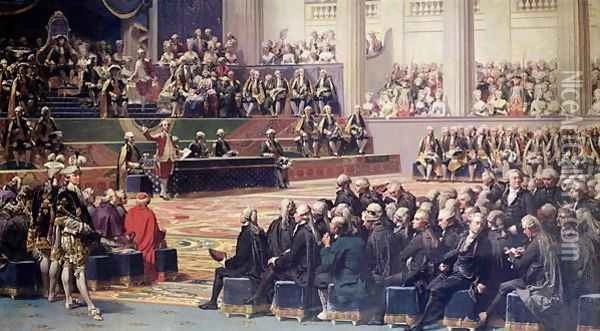The story that unfolds below begins in a spring, goes through supermarket shelves, ends in celebrities’ toilets, and starts again. This vicious circle, from the bottom to the flush and vice versa, is an example of the chain of trade in this era of globalization, but it collapses as climate change worsens. This small example, in a small county of a small country, Portugal, implicates a big company in national terms. Yet in the big picture, this is a drop in the ocean. The pertinence of this article is based on a reflection about unity and multiplicity. In other words, I shall use it to draw a dialectical parallel with the totality of the capitalist system – and if this problem exists at this level, the reader ought to imagine it multiplied on a global scale. From a specific example, then – with some further thoughts – this article aims to be a concrete call to the fight for the public and responsible control of natural resources.
Pages of our history
Renova is a brand very well known for its colored toilet paper; it describes itself as the creator of black rolls of loo paper. As the company website states: “the 100% Portuguese company is present in more than 70 countries, distributed in five continents.” Other companies of the same group are headquartered in Spain, France, Belgium and Mexico. The history of the brand can be read online on its official website – or in Wikipedia; the accuracy is almost the same. I am not as interested in the historical facts as in the philosophical and ethical conclusions that we can derive from them. So, I will present only those facts that might influence these reflections.
The “old factory”, built at the beginning of the seventies of the last century, gives a strategic perk to the business. Its construction took place during the dictatorship, when any opposition resulted in prison time, but even so, implementation began before the company had approval from the government – which called it anti-constitutional. Nevertheless, it was built.
The building is situated above the spring of the Almonda river, although the bulk of the labor occurs in the “new building”, one kilometer away from the source of the river. As readers surely know, the production of paper consumes a lot of water. To give some idea, Renova takes from the river about 2.5 million cubic meters of water annually, about 280 cubic meters per hour. And because the source of the river is on land owned by the company, it had to pay, in 2020, just 5,000 euros to the Portuguese Environment Agency (APA, Agência Portuguesa do Ambiente).
The river in an important resource and an everyday symbol for the citizens of Torres Novas county – an essential location for the people. Locals often dive and refresh themselves there in the summer. However, because that ground is private property, Renova fenced it off, forbade the public to be there and labelled the place as dangerous. The legal grounds for doing so are ambiguous, as several laws must be taken into account. The ethical situation offers no margin for doubt: a private company is hindering the access of the population to a natural heritage that belongs to everyone. It belongs to the people because it is the reason for the existence of these communities, which have always lived by the river and have expanded in all directions. Like the first civilizations, through history, communities appear as the result of people dwelling near natural resources. History is the process of humanity working for survival: in other words, Man takes from Nature – with all the difficulties, contradictions and progress – goods that are the condition for the possibility of the survival of humankind. Even if the site is dangerous, it is up to the city council, which was democratically elected as representation of the people, to make decisions on how to prevent mishaps, accidents, causalities.
Under Portuguese law, this restriction on accessing the water resource is not valid. But that is not the question here. Even if the law gave full control to the company, that still would not make it right. Slavery was legal at certain times in history, abortion was labelled as a crime in the USA not so long ago, and so on. Justice and law are not the same thing. And it is justice that people fight for.
There is no necessity, from the point of view of production, for the old building to continue to exist; there are some machines still working within it, though they could be relocated. The territorial attachment aims exclusively at the maximization of profit, by not needing to pay for the water absorption – but even the renovation plan for the old pavilion and the naming of the site “Renova’s Sanctuary” dismiss that fact. Proving the absence of interest, for production purposes, in the factory plant on the top of the river’s spring, there exists a plan to expand the newest building. Approved by the City Council, and exempted by the Municipal Assembly from paying 286,000 euros in taxes – under the pretext of “public interest”.
As has been rightly maintained by the elected municipal officials of the left-wing Unitary Democratic Coalition [consisting of the CDU (Coligação Democrática Unitária), Portuguese Communist Party (PCP – Partido Comunista Português), the Greens (Os Verdes), and independents], an investment that aims at shareholder profit isn’t in the “public interest”, it is “private interest”. The jobs created, like those that already exist, are precarious, for the labor base; the contracts are mostly made with an intermediary company, offering no perspective of career progress. And, certainly, the appropriation of a common good, and an important one like water, is not in the public interest.
Weeks later, on the brink of being presented with a petition of almost a thousand signatures recommending dialogue between the City Council and the company, Renova sent an e-mail addressed to the Mayor and the President of the Municipal Assembly, and shared with the rest of the deputies, denying what the CDU had said. The motion passed, mostly because it was non-binding. But the arrogance of the company cannot go unchallenged:
“The water is not ‘ours’, in the sense in which this statement was made. The water is not public, it is private: it is ours, but [it belongs to] Renova – Fábrica de Papel do Almonda, SA. [Translated: Renova – Almonda’s Paper Factory, Inc.]”
In some parts, the river flow is very low. In other stretches, mainly at summer, there is no water at all. Whilst Renova continues to take tons of water from the source, paying almost nothing for it, droughts are getting increasingly common. In the future, will the river continue to run across the county? Or will Renova keep all the water to itself to make colored toilet paper? And if the water belongs to the company, is the survival of the UNESCO biosphere reserve (Boquilobo Bog Natural Reserve, situated at the river’s end, where it meets Tagus river) subject to Renova’s goodwill?

It’s all about water
The story has been told. Now that a particular example was presented, it’s time to talk about the global picture.
Let’s start from the beginning. Water is the main reason that Earth is the only known planet to have life. Without water there’s no life. As stated previously, access to water influenced the world’s geography as we know it. Civilizations rose and were raised on riverbanks. During the industrial revolution, the margins of rivers were strategic places to build factories, to absorb water and to expel waste. Rivers were (and still are, in some places) part of the sewage system. Agriculture needs tons of water. This obvious and childish way of affirming truths aims to highlight how fundamental water is, and how basic this problem is. So simple that people from rich countries are deluded by the abundance of water, and how easily it flows toward their thirst.
Yet, Earth doesn’t have infinite resources. This productive and financial system is drying the planet. Capitalism means: the concentration of capital in the hands of few, and that is the rule to be followed. Water is raw material for production, and increasingly a very precious one. Without water, production can’t happen. Aiming exclusively for profit, capitalists try to control the means of production, including the feedstocks. And that is why there is no green capitalism. Ecology and profit-at-any-cost are not compatible. To maximize profits, the chains of production and trade follow the low prices of services and labor, not the sustainability. Capitalism doesn’t aim to resolve problems. That is not the nature of the system. Capitalism lives for and by profit. Lives, environment, wellbeing are taken in account when they serve the sales, what is the same as saying that capitalism doesn’t care at all about those things.

As The United Nations World Water Development Report 2021, entitled “Valuing Water”, says:
“Those who control how water is valued control how it is used. Values are a central aspect of power and equity in water resources governance. The failure to fully value water in all its different uses is considered a root cause, or a symptom, of the political neglect of water and its mismanagement. All too often, the value of water, or its full suite of multiple values, is not prominent in decision-making at all.”
Value means not only the price, but the cultural value too. And also the use value. The conduct of the climate crisis, as it has been undertaken, determines what is the correct use of the natural resources, blaming the individual, call on personal responsibility – those are parts of the process of attaining profit. However, the way companies operate stays the same or even aggravates, if the prospect for profit mandates. Governments condone and create more opportunities for the freedom of operation of big private economic and financial entities.
Take for example the pandemic period, which brought an economic crisis. Tax rebates and compensation were granted to big companies. Most of them profited greatly from this exceptional period. And more and more periods of exception will happen in the near future. Because they are windows of opportunity for big capital, nothing will be done to prevent them. Thus, those that have the important resources in their hands will profit even more. When a problem related to water happens – droughts, contaminations, water treatment deficiencies – following the usual-way-of-making-business, those who will be advantaged are those to whom the resources, raw and pure, belong. They are the ones that will define the gauge which we shall then have to work and live by.
In 2020, water entered the stock market financial game, turned into a (Futures) commodity like gold and oil, potentialized by the big fires in California – the necessity of massive quantities of water to put them out, mixed with the difficulty of access, make this kind of metaphysical happening. Water is quoted on Wall Street, and it’s possible to bet in its future value. The scarcity allows this game. The importance of water is not restricted to the productive capital. Water speculation, as a metaphysical financial commodity, exacerbates the problem and prevents its solution. If it’s possible to buy a certain quantity of water to be delivered at some time in the future, at today’s price, without assurance of existence of that quantity, probably someone will lose in this business. If the public institutions, municipal and governmental, enter the game, what is the most probable, because they follow and are controlled by the private sector, those who will lose the most are the people. We are entering an era of fictional water. When we talk about a financial asset like gold, that has an economic and financial historic role, its development into a non-physical asset is just another financial bubble being inflated. But when we talk about the most essential resource of the planet, water, the shards of the bubble will reap lives. Financial markets are irresponsible, they do not care about the relation of the assets with the material means. So, it’s very probable that we’ll be buying a lot more water than the one that exists in the planet.
Another lapalissade: the access to water is a basic human right. To give control of value manipulation to big corporations, based on the financial trading, is to financialize life itself in one of its fundamental and primary requirements.

Marketing and the sexy façade
It is said that Beyoncé only uses Renova’s red toilet paper. This, by itself, from the use value perspective, in the peculiar contemporary world, opens a lot of marketing possibilities and sexualizations for that purpose. If common people related, the result would be merely scatological – there’s no color in the world that can embellish the act for us simple mortals.
Not despising the dialectics between the physiologic necessities of stars and common people, and how they manage that, Renova’s brand has a colorful panoply of loo rolls. It’s this rainbow that makes the company claim that produces “the sexiest paper on earth.”
The use value of paper, the utility, is dyed colorfully, hiding from people what the product should be about. It’s all about competition, trying to present a different product, which does the same thing but is more appealing, because it’s sexier, has more sex appeal. Even if there is no relation between sexiness and tissues, paper sheets and loo rolls. Behind and beyond that appearance, the environment suffers, and the people is expropriated of what is public.
Environmental issues, in the capitalist society, are addressed, essentially, in two ways. First, denial. Second, as a way of selling. The denial approach takes many forms, one of which is inducing fear in workers, telling them that these questions will kill their jobs. By ignoring facts that get in the way of their profit, capitalists are perpetuating the problem and creating barriers to possible solutions. On the second point, there are many ways of selling a product, and greenwashing is one of them. And I’m not talking about the color of the paper. Washing away the dirtiness of capitalism is just a marketing strategy aiming to alienate, to make people believe that the industries and companies are doing everything in their power for the good of the planet. No matter how much you wash, the system itself is dirty.
The sexualization of the product aims to obfuscate. In a kinky disguise the commodity doesn’t exist as it really is. Using the same example once more, the process of coloring the paper pollutes more than the simple white one. But the colored one is much sexier, so sexy that Beyoncé uses it. By attaching celebrities to products, companies build a fake image of itselves. On the outside it appears sexy and trendy. Inside, workers are exploited, and natural resources are alienated from the people.
The industry must function, workers need jobs, but profit should not be obtained and maximized at the cost of environmental devastation. In this case, the people are not against Renova. In this stage of society’s development, it’s important to maintain factories functioning, we don’t want to eliminate jobs, but the modus operandi related with the water source must change. The company will never change its ways of doing things, because its hunger for profit won’t be satiated. The only solution for the planet and humanity is, through regulation, to taper production toward its use value, progressively discarding financial speculation. Earth doesn’t have unlimited resources to back up the bubble of fictional commodities.
Another drop of words to conclude
Following Marx’s thought, I sincerely believe, and this is the most difficult part in a praxis kind of way, that the true abolition of capitalism can only happen in the richest countries – nevertheless, the current rich ones, most certainly, won’t stay in that condition forever. That victory would be followed by the rest. But transnational capitalism, based on financial empires and not strictly related to a geographical nation, has turned to be the most powerful barrier to demolishing the capitalist system. It’s those empires that are the fundamental element that perpetuate the status quo. They establish the laws. And according to those rules, any company that wants to survive ought to deceive, through marketing and publicity. Doesn’t matter if it’s a lie, as long as it sells.
The small companies want to be big, and to grow they must follow the principles of the fattest; then, even if they aren’t the core of the problem, they are metastases. The capitalist cancer is profoundly incrusted in the tissue of the society. That sickness is the system that moves society. The desire for profit gives birth to consumerism, and consumerism alienates people, imposing barriers to solve profound problems.
However, based in the idea that the small follow the big ones, if the people start to secure, globally, the most important natural resources, this probably opens up the possibility of securing further resources and means of production. By starting with water, the people appropriation of the rest of the resources, natural and non-natural, will follow on from that struggle. And this must be done both in small cities and in big countries. The movement must be global! Dreams are the matter of hope, and hope is what transformation is made of.
Finishing where we began, Renova, a well-established company, should give back the natural resource to the people, acting for the good of society and humanity, thinking less about its profits, which would exist anyway without “free” water. If we lived in a society searching to solve its problems, this has to be a starting point. But we can’t live by illusions. It is up to governments to resolve this problem. Laws must urgently be passed to preserve the natural resources, impeding the private appropriation. Privatization of water leads to the possibility of increased prices, impending the access for those who can’t pay. With the expansion of water financialization, large masses of water will be preponderant assets in the global market.
No one owns the rain. No one should be owner of essential natural resources. Measures must be taken into action to prevent the monopolization of water. It’s up to the people to pressure the governments, national and local, to stop privatization of water and related sectors. These must be nationalized: they must belong to the people. Thirst for power must not cause a drought in people’s lives.
If you are a socialist, We need you now!✕
We are proudly biased towards Anti Capitalist, Anti Imperialist, Anti fascist! We believe we don’t need to mention you the importance of marxist magazine in this era! We are depending on our comrades only! Make an investment of $2.5/m in making a quality journal inclined to Marxism Leninism! Your one potential subscription helps us to maintain our global team! Subscribe and get access of all exclusive content available at the magazine section!






